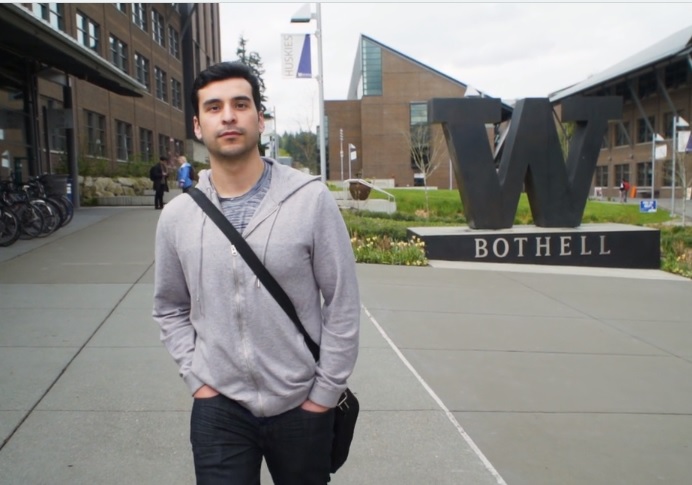
The impact faculty mentors can make during college is a powerful — as three students from the University of Washington Bothell experienced firsthand. Now alumni, they encourage other students to connect with faculty outside class.
Get involved in research or a community-based project, advises Mayra Rivera, a Health Studies major who graduated in 2019, “because you never know what you might be missing out on.”
“Mentoring for me was really researched focused,” said Sara Cole, a major in Society, Ethics & Human Behavior who graduated in 2017, “but any student can connect to a professor in the classroom.”
Hear the stories
In “The Power of Mentoring: Stories from the University of Washington Bothell,” students Rivera, Cole and Luis Ramirez share stories about the impact mentoring has made in their education and in their lives.
“I’m the combination of my mentors, of my friends, of my parents,” said Ramirez, a Mathematics major and a Computing & Software Systems minor who graduated in 2019. “In terms of what I want to do, and how I want to succeed, I wouldn’t have been able to do it without a mentor here.”
No matter what you study or where you might come from — entering college straight from high school, transferring from another school or coming back as an adult — having a mentor at UW Bothell has made all the difference, the students agree.
Mentoring at the core
“I really feel like mentorship is the heart and soul for me,” said Jody Early, associate professor in the School of Nursing & Health Studies. “As an academic, I view mentorship and teaching at the core of what I do.”
Early is also an affiliate faculty in Gender, Women & Sexuality Studies and at UW’s Latino Center for Health. Whether it’s helping students explore their own research questions or inviting them into her community-engaged public health scholarship as co-collaborators, Early tries to find ways to ignite students’ passion for research.
Support to explore
Faculty mentor Milagros Loreto, an assistant professor in the School of Science, Technology Engineering & Mathematics, also provides a supportive and challenging environment so that students can make substantial contributions in her research work. She engages students both formally and informally regarding graduate school possibilities, and her students share their undergraduate research at local, regional and national conferences.
“Undergraduate students are brilliant. They have fabulous ideas,” said Loreto. “And then my job is to coach them in exploring the idea that they chose.”
Both faculty mentors, Early and Loreto, are recipients of the 2018 Chancellor’s Distinguished Undergraduate Research and Creative Practice Mentor Award — and credit their calling as mentors now to the powerful mentor relationships they had when they were college students.



